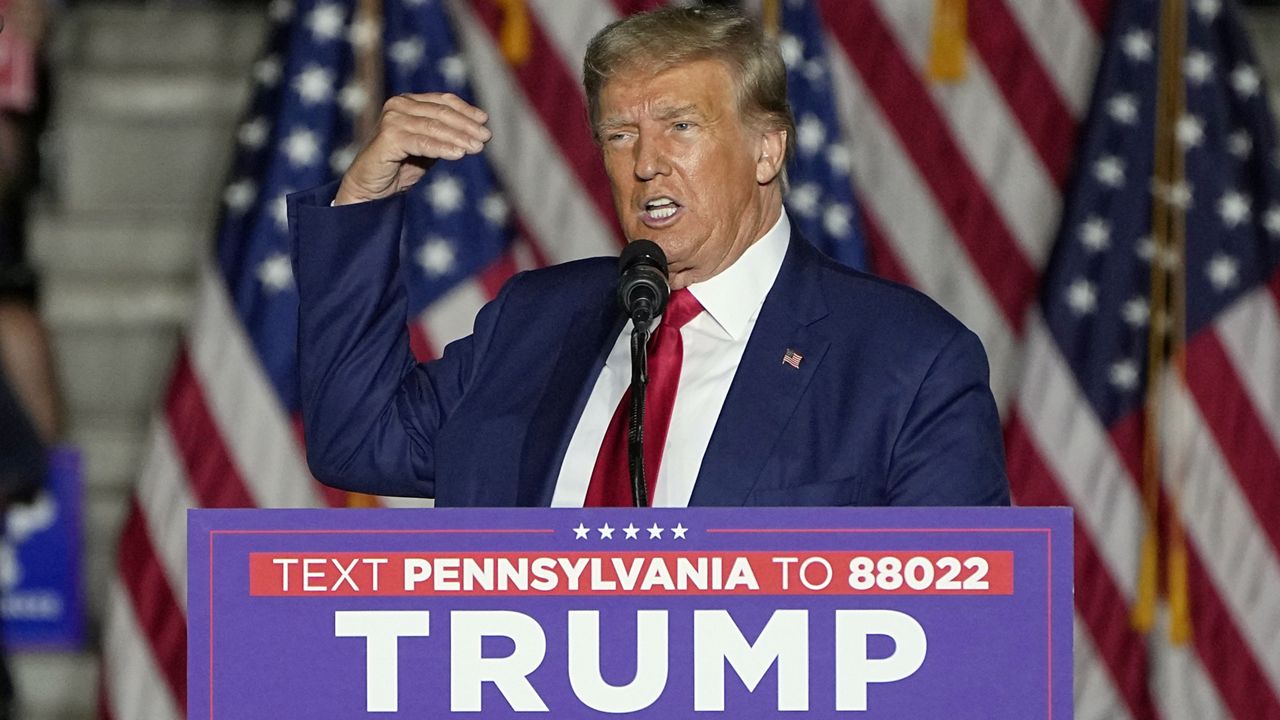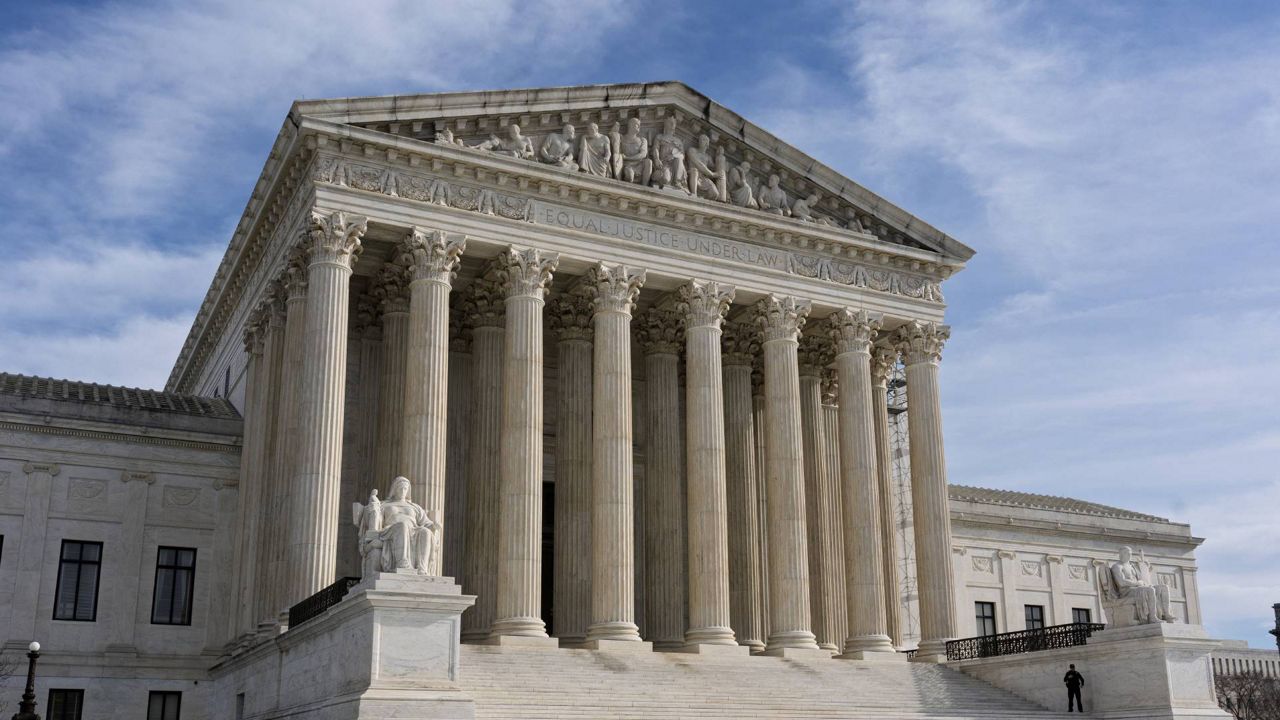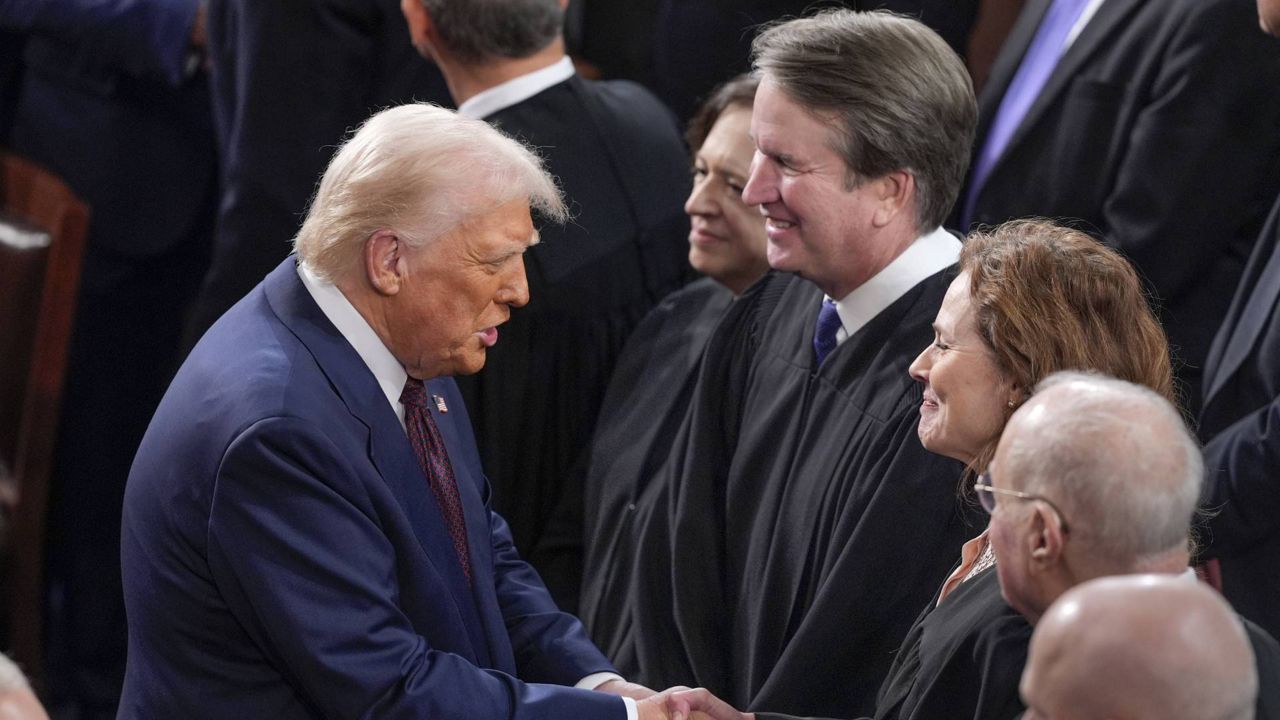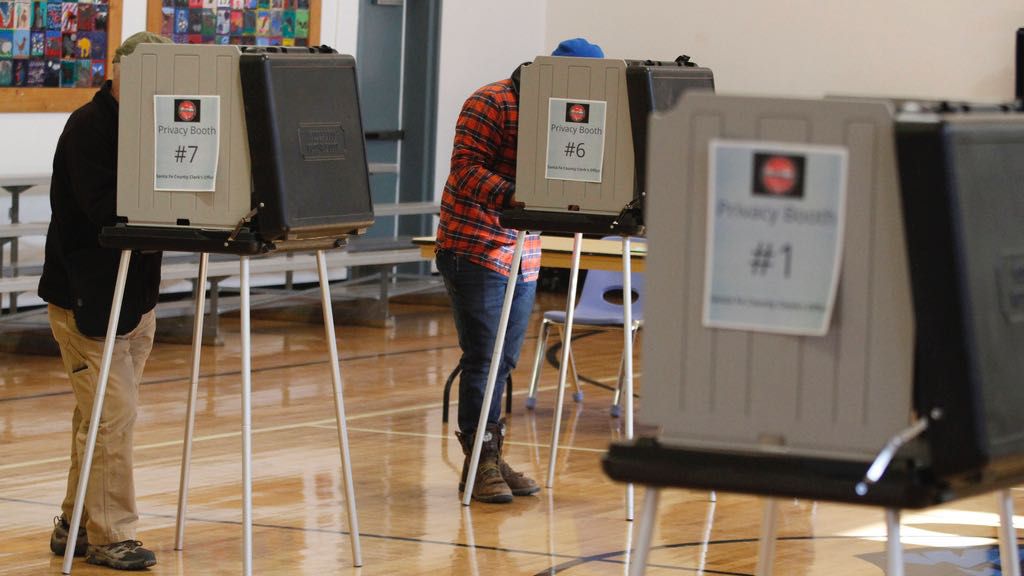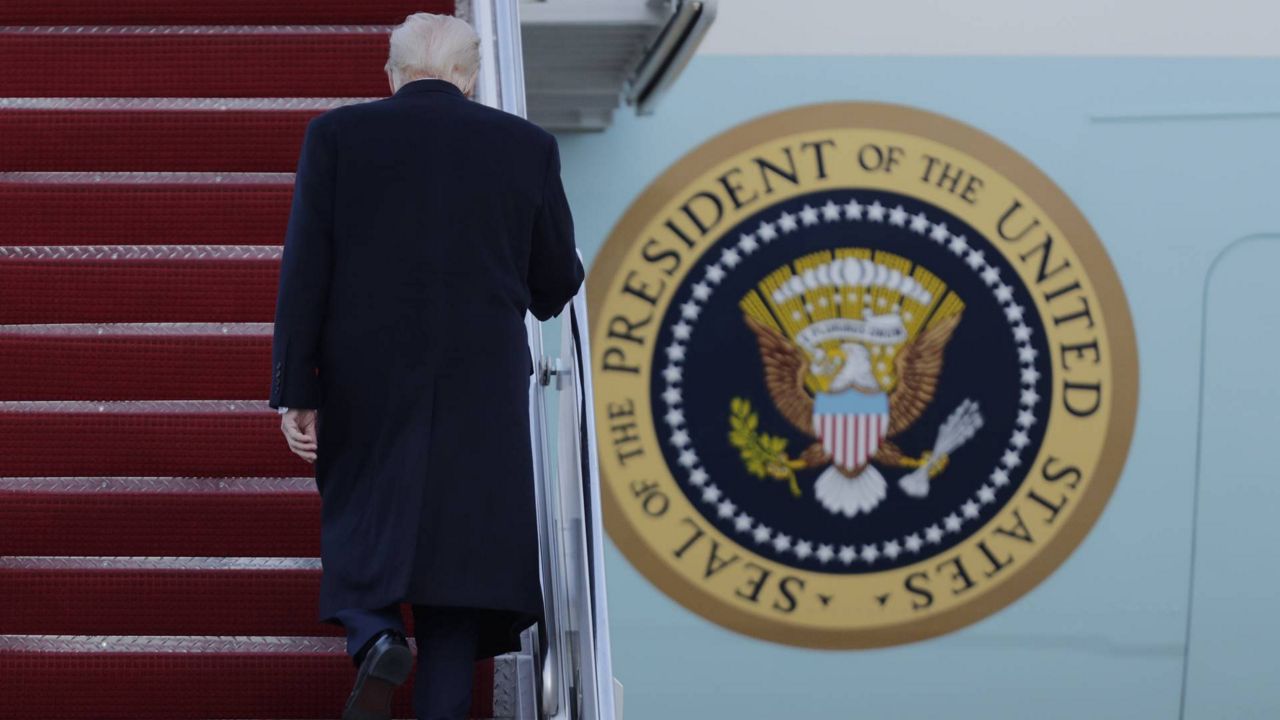The six Colorado voters who sued to keep former President Donald Trump off the ballot in 2024 have filed an appeal after a federal judge ruled last week the Constitution’s 14th Amendment does not cleary apply to presidential candidates.
Meanwhile, Trump is also appealing the ruling because District Judge Sarah Wallace found that he engaged in insurrection by inciting the rioters who attacked the U.S. Capitol on Jan. 6, 2021.
What You Need To Know
- The six Colorado voters who sued to keep former President Donald Trump off the ballot in 2024 have filed an appeal after a federal judge ruled last week the Constitution’s 14th Amendment does not cleary apply to presidential candidates
- Meanwhile, Trump is also appealing the ruling because District Judge Sarah Wallace found that he engaged in insurrection by inciting the rioters who attacked the U.S. Capitol on Jan. 6, 2021
- The Colorado voters argue that Judge Sarah Wallace’s ruling defies “common sense” and that it’s clear the framers of the Constitution considered the presidency to be an “office,” and therefore the president to be an “officer.”
- Trump's attorneys are raising 11 issues, including whether Wallace had the jurisdiction to rule in the case at all and whether she correctly defined terms such as “engaged in” and “incited” in her ruling
Section 3 of the 14th Amendment disqualifies anyone from serving in a wide range of federal and state offices if they have taken an oath of office to protect the Constitution and then “engaged in insurrection or rebellion.” But it does not specifically refer to the presidency. Wallace found that president does not meet the definition of "an officer of the United States.”
The Colorado voters — all of whom are Republicans or unaffiliated with a political party — filed their appeal Monday night. They argue that Wallace’s reasoning defies “common sense” and that it’s clear the framers of the Constitution considered the presidency to be an “office,” and therefore the president to be an “officer.”
“The court held that Section 3’s disqualification rule does not apply to insurrectionist former Presidents, nor to any insurrectionists running for President—in effect, that this office alone is above the law,” their filing reads.
The Colorado voters are being represented by the ethics watchdog group Citizens for Responsibility and Ethics in Washington (CREW) and three law firms.
“We always knew this case would end up before the Colorado Supreme Court, and have been preparing for that from the beginning,” CREW President Noah Bookbinder said in a statement. “We are planning to build on the trial judge’s incredibly important ruling that Donald Trump engaged in insurrection, and we are ready to take this case as far as necessary to ensure that Donald Trump is removed from the ballot.”
The Trump campaign has not responded to an email from Spectrum News seeking comment about the appeal.
After Wallace issued her ruling Friday, Trump spokesman Steven Cheung issued a statement calling it “another nail in the coffin of the un-American ballot challenges.”
Wallace’s ruling was the third in a little more than a week that sought to disqualify Trump under the 14th Amendment. The Minnesota Supreme Court last week said Trump could remain on the primary ballot because political parties have sole choice over who appears, while a Michigan judge ruled that Congress is the proper forum for deciding whether Section 3 applies to Trump.
“These cases represent the most cynical and blatant political attempts to interfere with the upcoming presidential election by desperate Democrats who know Crooked Joe Biden is a failed president on the fast track to defeat,” Cheung said. “ … This right was correctly preserved in Colorado today and we urge the swift disposal of any and all remaining Democrat ballot challenges.”
However, as evident by his own appeal Monday, Trump still found fault with the part of Wallace’s ruling in which she found he engaged in insurrection.
His attorneys are raising 11 issues, including whether Wallace had the jurisdiction to rule in the case at all and whether she correctly defined terms such as “engaged in” and “incited” in her ruling.
Wallace had rejected the arguments by Trump’s attorneys that the former president was engaging in free speech when he addressed a crowd near the White House just before a mob of his supporters stormed the Capitol. The rioters clashed with police and halted congressional proceedings to certify Joe Biden’s win over Trump in the election, which Trump falsely claims was plagued by widespread fraud.
The “district court nonetheless made legal and factual findings wholly unsupported in the law, and these errors demand review – especially if the Petitioners in this matter also seek review of the sole dispositive issue upon which President Trump prevailed,” Trump’s lawyers wrote in their appeal.
Among the plaintiffs are former Colorado House and Senate Majority Leader Norma Anderson and former U.S. Rep. Claudine Schneider of Rhode Island — both Republicans — and conservative columnist and Republican activist Krista Kafer. Two of the attorneys representing them are former Colorado Solicitor General Eric Olson and longtime Republican election lawyer Mario Nicolais.
Whether it’s the Colorado case or one filed in another state, the question ultimately is likely to reach the U.S. Supreme Court, which has never ruled on Section 3. The group suing in the Michigan case, Free Speech for People, filed an appeal Thursday in state court.
The Associated Press contributed to this report.
Ryan Chatelain - Digital Media Producer
Ryan Chatelain is a national news digital content producer for Spectrum News and is based in New York City. He has previously covered both news and sports for WFAN Sports Radio, CBS New York, Newsday, amNewYork and The Courier in his home state of Louisiana.





